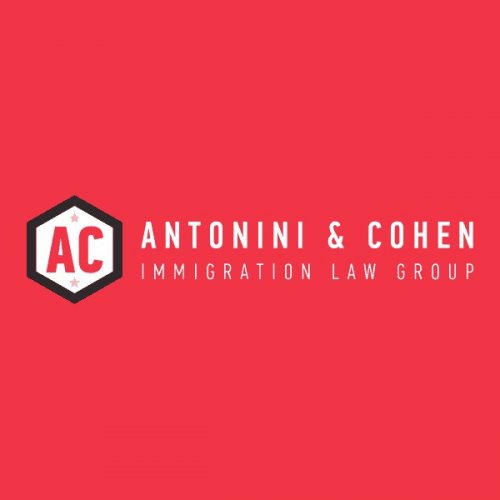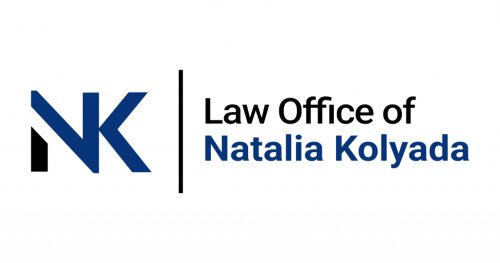Best Dependent Visa Lawyers in Georgia
Share your needs with us, get contacted by law firms.
Free. Takes 2 min.
Or refine your search by selecting a city:
List of the best lawyers in Georgia, United States
About Dependent Visa Law in Georgia, United States
A Dependent Visa in the United States allows family members of certain visa holders, such as international students, employees, or other non-immigrants, to live in the U.S. during the primary visa holder's stay. In Georgia, the procedures and requirements for dependent visas closely follow federal immigration laws, but local nuances and support services can play a significant role in the visa process. Spouses and children (usually unmarried and under 21) of eligible visa holders, such as H-1B employees or F-1 students, may qualify for dependent visas like H-4 or F-2 classifications, respectively. While the dependent visa authorizes residency, it typically restricts employment and other activities unless otherwise granted.
Why You May Need a Lawyer
Navigating the dependent visa process can be complex, especially when dealing with changing immigration policies, documentation requirements, or if complications arise. You may need a lawyer for several reasons, including:
- Assistance with preparing and submitting visa applications and supporting documents.
- Dealing with issues such as visa denials or requests for additional evidence.
- Explaining rights and restrictions associated with dependent status, including work and study rights.
- Handling changes in status, such as divorce, turning 21, or switching to another visa category.
- Advising on potential paths to permanent residency or citizenship for dependents.
- Navigating unique family situations like blended families or adopted children.
- Responding to changes in federal or Georgia-specific immigration enforcement priorities.
Local Laws Overview
While U.S. immigration and dependent visa laws are established at the federal level, there are aspects specific to Georgia that applicants should be aware of. Local interpretation of federal guidelines, state residency rules, and access to public benefits or educational programs can differ from other states.
- Dependent visa holders must comply with both federal visa conditions and any state requirements regarding residency, schooling, and healthcare.
- Georgia’s local agencies may require proof of address, eligibility documentation, or additional paperwork when enrolling dependents in schools or applying for driver’s licenses.
- There may be strict penalties for violating visa terms, like unauthorized employment, even at the local level.
- Consistent changes in national immigration procedures may affect local processing timelines and resources available to applicants in Georgia.
Consulting a Georgia-based immigration attorney helps ensure compliance with both federal rules and relevant local practices.
Frequently Asked Questions
What is a dependent visa and who qualifies for it?
A dependent visa allows family members of eligible non-immigrant visa holders to stay in the U.S. Spouses and unmarried children under 21 typically qualify.
Can dependents work on a visa in Georgia?
Most dependent visas, such as H-4 or F-2, do not authorize employment. Some, like certain H-4 visa holders, may obtain employment authorization under specific circumstances.
Can dependent children attend public school in Georgia?
Yes, dependent children may usually enroll in public schools. Additional documentation, such as proof of residency and visa status, may be required.
What documents are needed to apply for a dependent visa?
Application forms, passports, marriage or birth certificates, proof of the principal visa holder’s status, and other supporting evidence are commonly required.
How long does the dependent visa process take?
Processing times vary depending on the type of visa and caseload at the local U.S. consulate or immigration office. It may take several weeks to months.
Can a dependent travel in and out of the United States?
Dependents can travel with a valid dependent visa and passport. Re-entry is subject to immigration officer discretion and maintaining valid status.
What happens if the principal visa holder changes status?
The dependent’s status is usually tied to the principal visa holder. Any changes, such as extensions, transfers, or status changes, affect the dependent’s eligibility.
How does divorce or marriage dissolution affect dependent visa status?
A dependent spouse’s legal status usually ends with divorce or annulment. Children’s status may continue as long as they remain qualifying dependents.
Can dependents apply for permanent residency in Georgia?
Certain situations may allow dependent visa holders to apply for permanent residency, but eligibility and process depend on many factors. Legal guidance is strongly recommended.
What should I do if my dependent visa application is denied?
You may appeal, reapply, or address the grounds for denial. Consulting a qualified immigration attorney helps determine the best course of action.
Additional Resources
For further information or assistance regarding Dependent Visas in Georgia, United States, consider consulting the following:
- U.S. Citizenship and Immigration Services (USCIS)
- Georgia Department of Human Services
- Local offices of the Georgia Bar Association
- American Immigration Lawyers Association (AILA)
- University international student offices (for F-2 dependents)
- Community-based immigration organizations in Georgia, such as Catholic Charities Atlanta or the Latin American Association
Next Steps
If you require legal assistance with a dependent visa in Georgia, consider the following steps:
- Consult with a qualified immigration attorney experienced in dependent visa matters in Georgia.
- Gather all necessary documentation, including visa papers, identification, and relationship proof.
- Schedule an initial consultation to discuss your specific situation and receive tailored advice.
- Stay informed about any changes in U.S. immigration policy that may affect your case.
- Contact reputable local organizations for additional support and resources.
Taking these steps can help you successfully navigate the dependent visa process and safeguard your family's residency status in Georgia.
Lawzana helps you find the best lawyers and law firms in Georgia through a curated and pre-screened list of qualified legal professionals. Our platform offers rankings and detailed profiles of attorneys and law firms, allowing you to compare based on practice areas, including Dependent Visa, experience, and client feedback.
Each profile includes a description of the firm's areas of practice, client reviews, team members and partners, year of establishment, spoken languages, office locations, contact information, social media presence, and any published articles or resources. Most firms on our platform speak English and are experienced in both local and international legal matters.
Get a quote from top-rated law firms in Georgia, United States — quickly, securely, and without unnecessary hassle.
Disclaimer:
The information provided on this page is for general informational purposes only and does not constitute legal advice. While we strive to ensure the accuracy and relevance of the content, legal information may change over time, and interpretations of the law can vary. You should always consult with a qualified legal professional for advice specific to your situation.
We disclaim all liability for actions taken or not taken based on the content of this page. If you believe any information is incorrect or outdated, please contact us, and we will review and update it where appropriate.
Browse dependent visa law firms by city in Georgia
Refine your search by selecting a city.
















